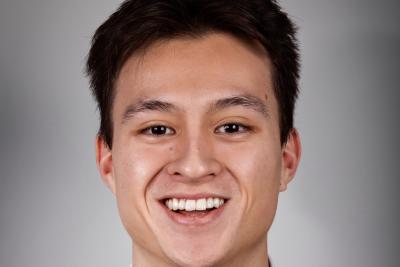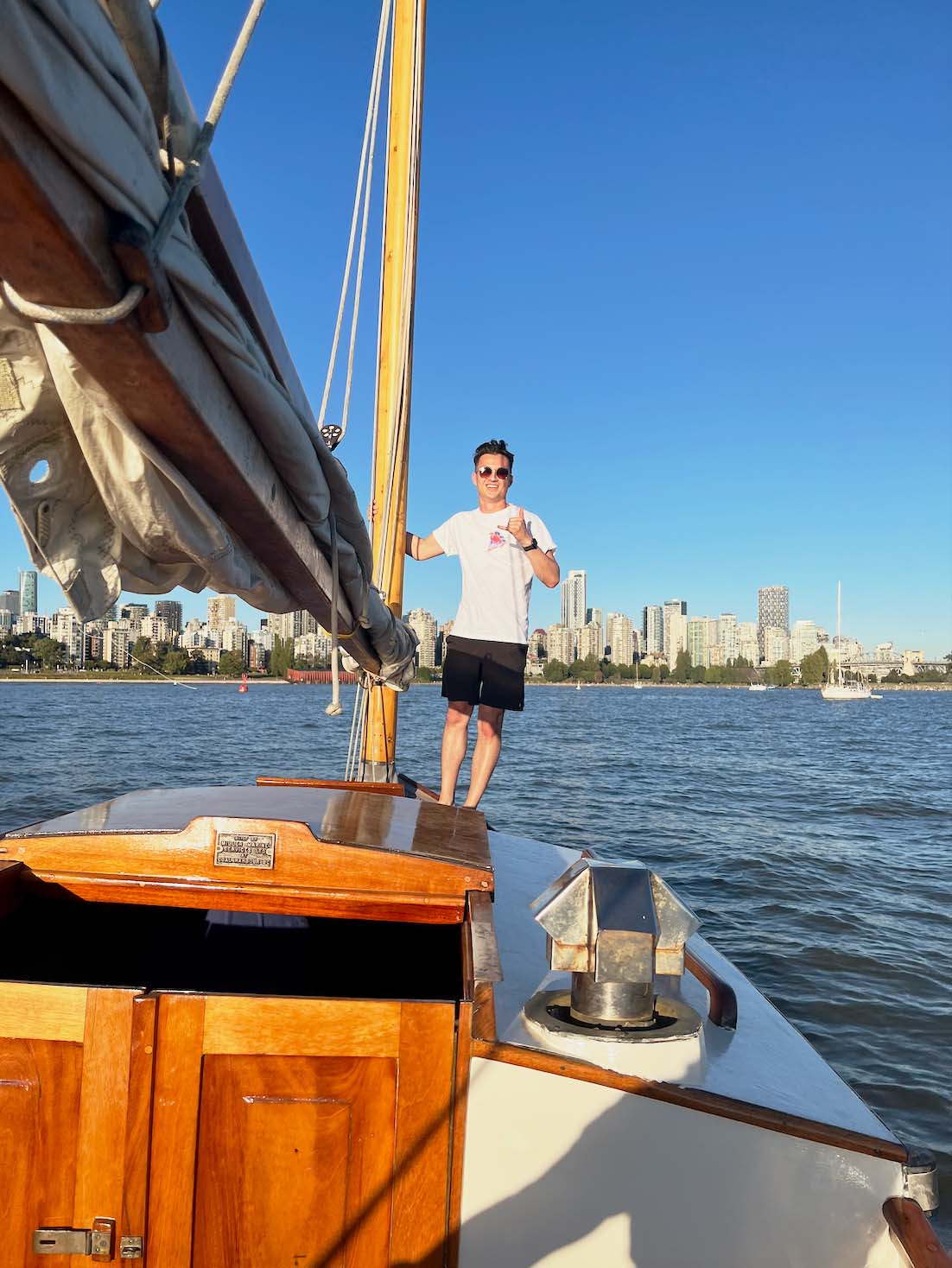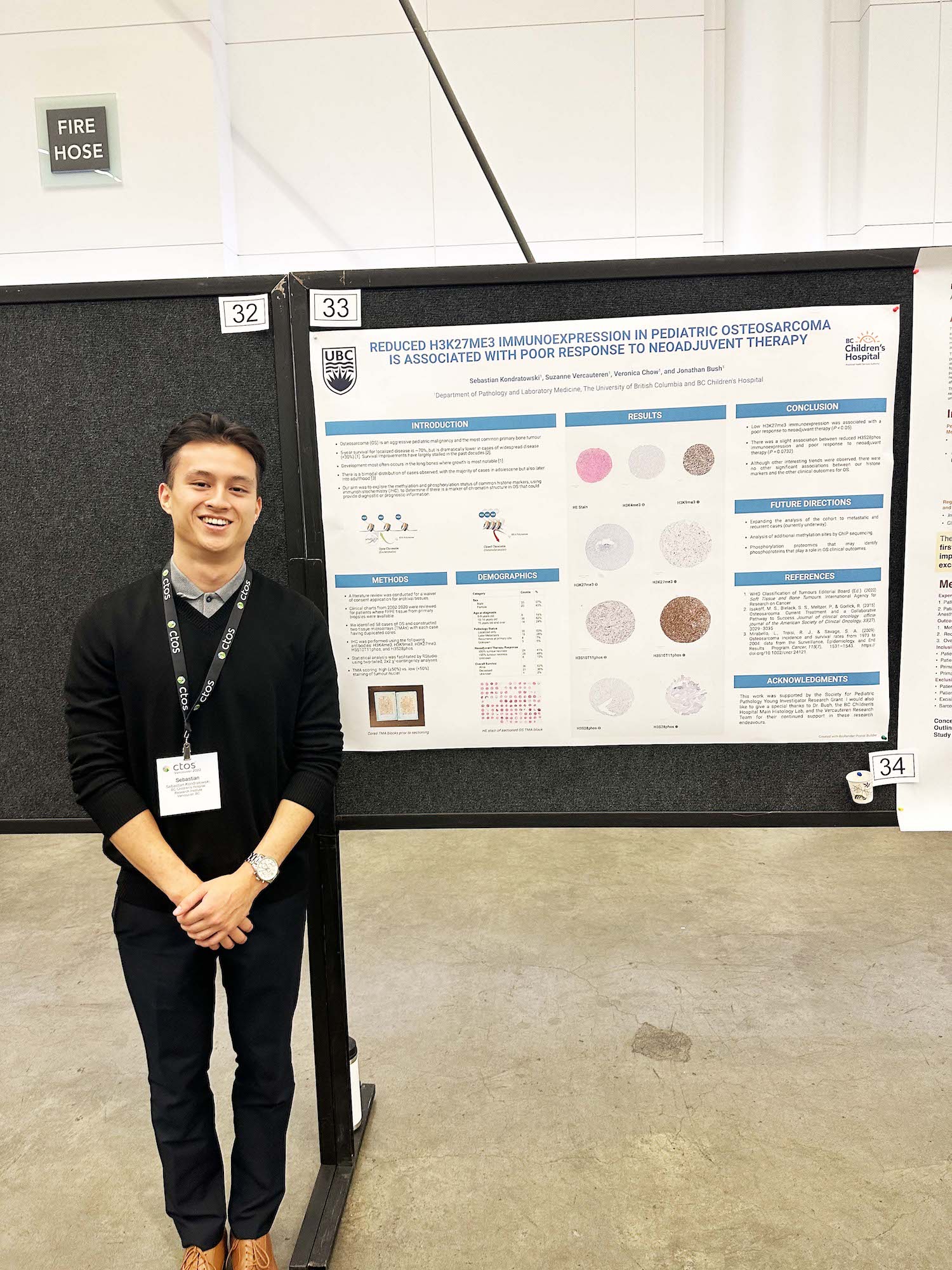Featured Student: Sebastian Kondratowski
August 1, 2023

August 1, 2023

I majored in Biology and graduated in 2023.
I had first heard about co-op programs in general from my older cousin who thoroughly enjoyed his experience with the Arts Co-op Program at UBC.
Originally, I planned to graduate as quickly as possible, but the gleaming reviews I heard about the program convinced me otherwise.
My first co-op placement was at the BC Children’s Hospital Division of Rheumatology as a Project Assistant. There, I worked on the CAPRI JIA Registry study, a nationwide longitudinal study investigating disease course, outcomes and adverse events in Juvenile Idiopathic Arthritis by engaging with patients and families.
After eight months in the Division of Rheumatology, I joined the BioBank at BC Children’s Hospital as a Biobanking Research Assistant for the remaining eight months of my co-op sequence. There, I processed biospecimens, such as bone marrow and cerebrospinal fluid, for cryopreservation in addition to consenting patients to donate their samples to our biobank. It was my first experience working in a wet lab and was instrumental in honing my laboratory skills for my last undergraduate year. Having both my work placements at BC Children’s Hospital was incredible and I was fortunate to be surrounded by inspiring people every day.
My favourite co-op experience was an outing with my colleagues at the Biobank to Kitsilano Beach last summer. We got dinner out and brought games to play at the beach. My colleagues always showed a strong sense of camaraderie and worked hard to ensure that the BioBank was a fun, engaging and inspiring place to work.

My best achievement(s) was presenting my BioBank co-op project at two different international conferences - one in Rochester, NY and one in Vancouver, BC. It was amazing, (and nerve-wracking,) to have the opportunity to present my work to experts in the field.
I felt most challenged by my co-op project at the BioBank, at least at the start. My supervisor proposed a project to investigate epigenetic modifications in osteosarcoma, which at the time felt overwhelming.
I knew some things about epigenetic modifications from my coursework, but certainly nothing about osteosarcoma. I overcame this by asking for help and bootstrapping it as best as I could.
I asked for reading materials from my supervisor when possible and scoured the internet and the literature in my free time. When I didn’t understand something, I wrote it down and asked the next time I saw my supervisor. With some determination and humility, you can certainly overcome a lot.
My co-op experiences definitely sharpened my hard skills in data analysis, interpretation and especially in scientific communication. This is in addition to the soft skills I gained from interacting with patients, families and colleagues.
Academically, the co-op program steered my course scheduling immensely and drove new interests in my studies. Having the opportunity to conduct research during my co-op inspired me to register in directed studies courses this past school year, to continue exploring my research ambitions.
The UBC Science Co-op Program has overall distilled my interests and direction.
The biology program at UBC is a double-edged sword in some senses. It’s great, because of the wider range of topics you can explore, but can sometimes make your direction vague. Supplementing my education with co-op focused my interests and was critical for my course selections – and more importantly my career ambitions.
Co-op opens your eyes to more possibilities for leveraging your degree than you previously thought possible.
Always ask questions. Your questions don’t necessarily have to be regarding a specific project or job task either. You could ask about career advice and several other things that pertain to your career journey. The backbone of any co-op program is professional development, so any co-op employer or supervisor should be more than happy to field your questions.
I would also recommend immersing yourself into what intrigues you at your placement and show this genuine interest to your employer. At my first co-op, I read some of the papers written by the researchers in my office and took the chance to ask them questions about the ones that fascinated me. This actually ended up relaying into a second job on a research team elsewhere, that I got to work on part-time.

I am looking forward to learning more about the tumour microenvironment in osteosarcoma at BC Cancer!
We honour xwməθkwəy̓ əm (Musqueam) on whose ancestral, unceded territory UBC Vancouver is situated. UBC Science is committed to building meaningful relationships with Indigenous peoples so we can advance Reconciliation and ensure traditional ways of knowing enrich our teaching and research.
Learn more: Musqueam First Nation